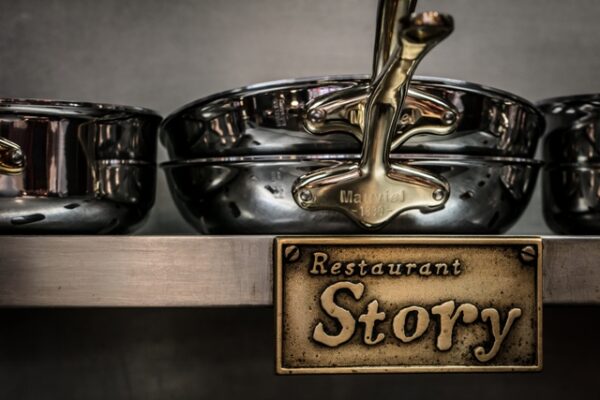HOTTINGER INVESTMENT CIRCLE
Independently owned multi-family office, Hottinger Group launched its members-only Investment Portal at the end of 2018 to provide potential investors with access to direct off-market private equity, private debt, and exciting curated opportunities through a dedicated online platform. The Group has seen sustained demand from clients and from external network seeking interesting and high-quality private deal flow to supplement traditional wealth preservation strategies.
> REGISTER YOUR INTEREST <
ABOUT US
Hottinger Investment Circle takes its name from a famous painting by James Tissot, The Circle of the Rue Royale, which celebrated its 150th anniversary in 2018. The work depicts Baron Jean-Conrad Hottinger gathered with eleven of his fellow club members in Paris. Like many of today’s private investors, the twelve participants collaborated to invest in the cutting-edge venture capital deals of their time, including pooling funds together to commission the painting itself.
Hottinger Investment Circle allows members to access and review a range of opportunities before connecting them directly with the entrepreneurs behind the deal.

CASE STUDIES

Evaratti
Founded in 2019, Everatti is a company with a clear vision – to reconceive vintage and iconic cars into beautifully engineered, fully electric, more powerful, rewarding and environmentally acceptable to drive for the foreseeable future. The mission is driven by multiple opportunities in the market. At present, the electric car market is predicted to grow to as many as 25o million vehicles by 2030 and the luxury car market is predicted to grow to $733bn by 2026.
Key investment highlights:
- Everatti is raising £2mn in EIS qualifying equity on a pre-money valuation of £5mn
- In addition to asset financing, the purchase of stock on a convertible loan basis may become available
- Mission to delivery shareholder value of over £25mn by 2024

Restaurant Story
Restaurant Story was a Michelin star restaurant based in central London owned and ran by Michelin star chef Tom Sellers. Tom had a proven track record after training at some of the world’s best restaurants including Aikens, Noma and Per Se and at the age of 26 he opened Restaurant Story. Tom’s food is predominantly British, using seasonality to lead a menu that invokes memory and brings a narrative to each plate. The Loan of £1.1mn was needed to help the restaurant navigate the tough trading period through the Covid-19 pandemic.
Key investment highlights:
- £1.1mn secured lending against his restaurant Story building (no previous standing debt)
- Option to lend an additional £900K after 12 months subject to business viability
- 10% annual interest to be paid at maturity in 24 months with the option of a 12-month extension upon mutual agreement
- Option to refinance or extend after 24 months upon mutual agreement

Project Pinnacle
This was an opportunity to provide £10.6mn of short-term financing to a UK limited company held by a Fund with a social impact approach, that Edmond de Rothschild Real Estate Investment Management has been appointed to manage, recapitalize and expand. This loan enabled the completion of the purchase of a 35-unit Shared Ownership scheme, within a larger building currently under construction in London’s Canary Wharf. Upon completion, Project Pinnacle comprised of a mix of a studio, 1- and 2-bedroom flats.
Key investment highlights:
- 12-month expected loan durations
- £10.6mn loan amount
- 7% p.a. (PIK) interest rate
Disclaimers
Investments involved in the Hottinger Investment Circle service will usually be in the shares of private, unlisted companies which might also be start-up or early stage companies.
We regard these investments as appropriate only for high net worth and sophisticated investors i.e. those who can understand and bear the risks involved, which may include a loss of some or all of the capital invested.
Investors should take appropriate advice on the tax consequences of investing in private, unlisted companies. The tax treatment of the investments may depend on individual circumstances. Schemes for tax reliefs (such as the EIS and SEIS schemes) depend on a range of issues, the circumstances of each investor, and can be changed or withdrawn. Investors should only invest in the investments accessed through Hottinger Investment Circle as part of a diversified portfolio containing a range of investments of different types and risk categories. Investors should not invest more than they would feel comfortable to lose. The below list is not exhaustive but the risks of investing in businesses such as these are likely to include:
Investments will be in non-readily realisable securities and similar investments, issued by unlisted companies. These companies may have a limited track record and operating history. Investors may lose some or all of the capital invested.
Investors should note that the types of investment available via the Hottinger Investment Circle are highly illiquid and their value is volatile and can suffer from adverse or unexpected market moves. There is unlikely to be any secondary market or other clear means of exiting any investment other than if the company sells its shares or arranges a flotation of its shares on a stock exchange or other market.
There is no time limit for investment in the types of investment available via the Hottinger Investment Circle. It may not be possible to liquidate, redeem or withdraw from any investment. Investments should be regarded as long term.
Early stage and start-up companies rarely pay dividends. Investors should not look to any investments available via the Hottinger Investment Circle as likely to provide any income in the foreseeable future. Investments may pay interest on loan instruments or dividends, others may not and investors should not look to any investment in a company entered into as a result of using the Investment Circle to provide them with a reliable income.
Investments in private, unlisted companies are likely to be subject to dilution. This means that if the company raises additional capital at a later date, it will issue new shares to the new investors, and the percentage of the business that the original investors own will decline. These new shares may also have certain preferential rights to dividends, sale proceeds and other matters, and the exercise of these rights may work to original investors’ disadvantage. Investments may also be subject to dilution as a result of the grant of options (or similar rights to acquire shares) to employees of, service providers to or certain other contacts of, the company.
You should take appropriate advice on the tax consequences of investing in the Investments. The tax treatment of the Investments may depend on your individual circumstances. Schemes for tax reliefs (such as the EIS and SEIS schemes) depend a range of issues on the circumstances of each investor and can be changed or withdrawn.
You should only invest in the Investments as part of a diversified portfolio containing a range of investments of different types and risk categories. You should not invest more than you would feel comfortable to lose.


